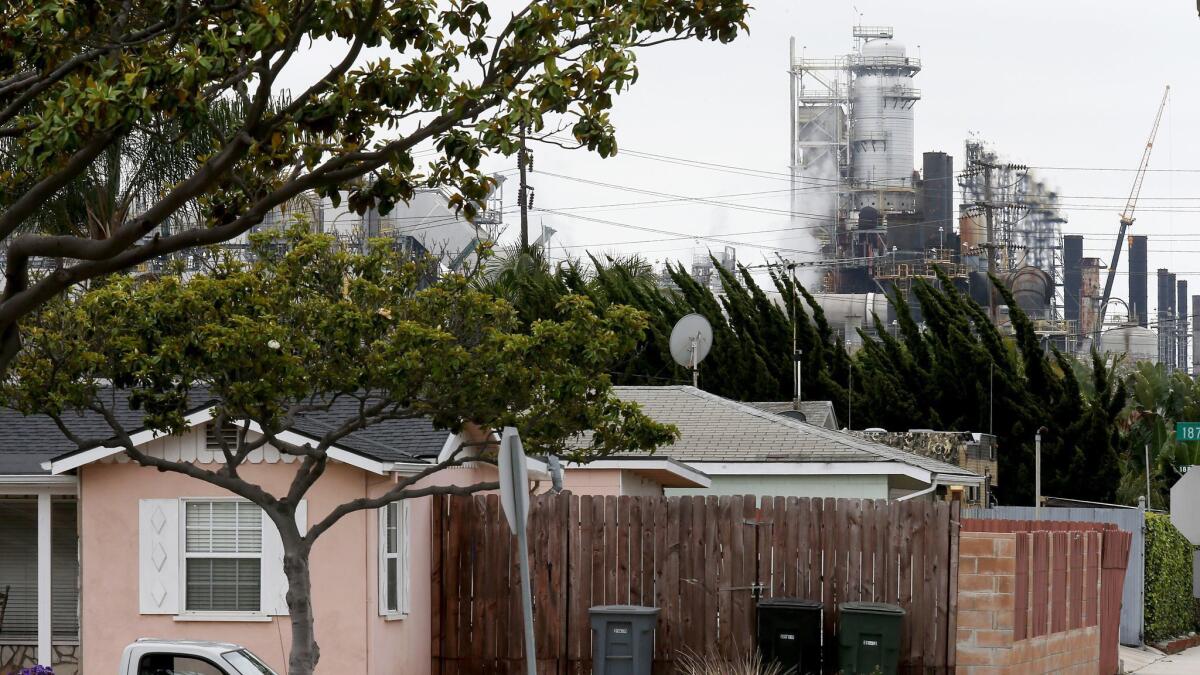Readers React: Valero and Torrance Refining Co. seem to think irreversible illnesses are a cost of doing business

- Share via
To the editor: Both Valero and Torrance Refining Co. seem to think that irreversible health effects are acceptable for families, kids’ clubs, and schools in the surrounding neighborhoods. (“Air quality committee rejects ban on toxic acid used in South Bay refineries,” June 22.) These companies don’t want environmental standards to apply either inside or outside their fence line; they don’t care if you’re walking or cycling or driving just outside the refinery.
At a June 22 SCAQMD Refinery Committee Community Meeting, a Valero vice president scoffed as he said that there is plenty of antidote available over the counter at Walmart. But what he didn’t say is that it’s a gel or cream. If you breathe in or get aerosolized hydrofluoric acid in your eyes, think toxic cloud and permanent damage.
Dorothy Moore, MD, Redondo Beach
..
Accidents are commonplace at the Torrance and Wilmington refineries. Yet the South Coast Air Quality Management District’s Republican-controlled refinery committee voted 3 to 2 to support an industry-backed alternative to keep using modified hydrofluoric acid (MHF) at those refineries.
L.A. County health officials estimate that 400,000 people within 1,600 feet of the plants could be affected with burns or possibly death if an accident occurred. Of the five distinct explosions — one in 2015 and the rest in the 1980s and 1990s — mentioned in an earlier L.A. Times article, four involved these refineries and two involved either deaths or injuries. The Torrance refinery said it would cost $900 million to switch from MHF to a safer chemical. One assumes that $900 million is worth the risk to 400,000 people.
Jim Hoover, Huntington Beach
Follow the Opinion section on Twitter @latimesopinion and Facebook
More to Read
A cure for the common opinion
Get thought-provoking perspectives with our weekly newsletter.
You may occasionally receive promotional content from the Los Angeles Times.









